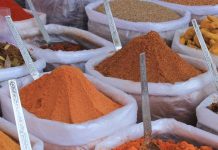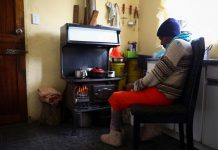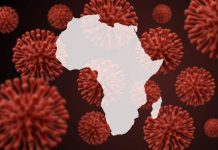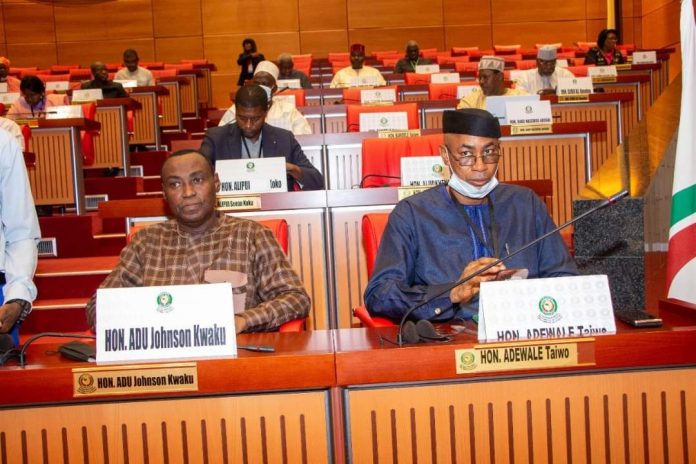Togo’s delegates to the ECOWAS Parliament have revealed that the country is currently battling an eight per cent inflation.
In its report to the parliament, the group, however, said that the nation is revitalizing the economy using four policies.
“Since the beginning of this new year, we have witnessed a global inflationary phenomenon, sparing no State. From the health crisis to the security situation, including the Russia-Ukraine war, the causes of this inflation are multiple and diverse. We are witnessing an increase in maritime freight, the price of industrial products, basic necessities, the price of oil…. There is an inflation rate of 8% in Africa, 9% in ECOWAS, 8% in WAEMU and about 8% in Togo,” the report said.
“To remedy this situation, support the purchasing power of households, strengthen resilience and come to the aid of the Togolese populations, the President of the Republic H.E. Faure Essozimna GNASSINGBE, in his address to the nation on April 27 last year, on the occasion of the 62nd anniversary of the accession to the sovereignty of our country, decreed four (04) main measures.
“The first measure concerns civil servants, parastatals and retirees who will benefit from a suspension from the month of May until the end of the year, from the reimbursement of the one-month advance on salary granted to them at the beginning of the year.
“At the same time, actors in the informal sector, in particular traders who operate in markets, will be exempted from paying market ticket taxes over the next 3 months from May 2022. This second measure will apply nationwide.
“The Togolese Head of State has also decided to cap the prices of local and imported products. The local products concerned are maize, sorghum, beans, pearl millet and rice. With regard to vegetable oil, milk, wheat flour and tomato concentrates which are imported products, they will also be exempt from value-added tax (VAT).
“The fourth measure taken as a response to the high cost of living concerns the beneficiaries of the products of the National Fund for Inclusive Finance (FNFI) who benefit from a reduction of 2 points in the interest rate in all localities and 4 points in areas known to be vulnerable.
“These measures are in addition to others previously taken in the same context of the fight against the high cost of living and the cushioning of the shock caused by the rise in the price of petroleum products since March 29. Among other things, the suspension of the Motor Vehicle Tax (TVM) and the capping of transport fares for goods and people, the subsidy of petroleum products, wheat and rice.”
Read full report below:
FIFTH LEGISLATURE
2022 FIRST ORDINARY SESSION
TOGO COUNTRY REPORT
Abuja FROM 9 JUNE TO 2 JULY 2022
PRESENTED BY THE TOGOLESE DELEGATION
Comprising:
- Honourable IBRAHIMA Mémounatou
- Honourable ALIPUI Séna
- Honourable BOLOUVI Patrick
- Honourable AGBANDAO Kounon Nahou
- Honourable SOKLINGBE Sénou
Abuja June 2022
INTRODUCTION
- Hon Speaker of the ECOWAS Parliament,
- Honourable Members of Parliament and Dear Colleagues,
- Cherished Guests, All Protocols Observed,
- Distinguished Ladies and Gentlemen,
In a gloomy international context marked by inflation, the health crisis, the war in Europe and insecurity, the Togolese delegation would like, on the occasion of this First Ordinary Session of the year 2022, to renew to the Speaker of Parliament and to all colleague Members of Parliament, its sincere thanks for the cordiality, trust, spirit of integration and fraternity which reign within Parliament.
It also wishes to express its gratitude to the Nigerian authorities for sparing no effort to ensure that our sessions are held under excellent conditions.
Furthermore, we would like to reiterate our thanks to all the staff of Parliament whose dedicated and professional assistance has never failed us.
Rt. Hon. Speaker,
Honourable Members and Dear Colleagues,
The country report that we have the honour to present captures all the events that have punctuated the political, economic, social and security life since our country’s last report presented during the Second Ordinary Session held in November 2021. It is structured around the framework proposed by Parliament, namely:
- Political Situation
- Security Situation
- Human Rights Situation
- Health Situation
- State of Implementation of ECOWAS Texts, particularly:
- Protocol on the Community Levy (CL);
Protocol on Free Movement of Persons and Goods; and
- Supplementary Act relating to Equal Rights between Men and Women for Sustainable Development in the ECOWAS Territory.
- POLITICAL SITUATION
In the pursuit of political reforms and the logical continuation of our Country Report last December, Togo is proceeding with its democratic march as part of an inclusive and permanent dialogue aimed at preserving peace, cohesion and togetherness.
To this end, the discussions initiated as part of the National Consultation among Political Actors (CNAP) on the Head of State’s initiative, to involve political actors in the debates on issues of national interest in accordance with the President of the Republic’s policy of inclusion continued.
Thus, apart from the major texts resulting from the said consensual consultations, translated into bills by the government and unanimously adopted by MPs of the National Assembly in the last quarter of last year, further progress has been made in the political dialogue. As such, the discussions resulted in new bills adopted by the national representation, namely the law creating regions, adopted on March 2, 2022, the law modifying the electoral code and the law modifying the charter of political parties adopted on May 24. All of these reforms will contribute to a better organization of the regional elections that are looming on the horizon and will allow the political parties to better organize themselves, and the State to better partner them.
In addition, on the side-lines of the texts, the National Assembly proceeded to the election of new members of the Independent National Electoral Commission (CENI) on March 24, 2022 with 7 members for the majority in Parliament and 7 for the Opposition, 2 for civil society and one member representing the administration. These new elected officials were sworn in before the Constitutional Court on April 4, 2022 and set up the office on May 9, 2022. Moreover, in order to perpetuate consultation between political actors and to establish a framework for inclusive dialogue between the latter, a Permanent Consultative Framework (CPC) was established by Order of the Minister of State, Minister of Territorial Administration, on January 18, 2022. It is significant to emphasize that the said body is currently headed by the Opposition even if the presidency rotates.
In view of all the above, it is important to note that Togo has made significant progress politically, and to welcome the government’s initiative in creating the CPC and the spirit of consensus that reigned between the actors in this framework for discussion without outside intervention.
II – SECURITY SITUATION
The instability and volatility of the security environment is still of great concern to the international as well as sub-regional community, with Togo not spared. Indeed, the security situation in Togo is marked by a change in national and transnational organized crime which continues to take various forms coupled with the COVID-19 health crisis.
Thus, as we pointed out in our previous report, despite this difficult environment, Togo has managed to preserve peace and stability, thanks to important and judicious strategic choices made by the Head of State and the Government. That said, the Government is still pursuing reforms and reorganization within the defence and security forces through a community policing policy in order to respond to new threats.
Security Challenges
In the first quarter of this year, 2022, instances of insecurity recorded in Togo are residual and marked by the recurrence of offenses essentially of common law. The porous borders, technological advances and the ever-increasing facilities for mobility and concealment of evidence of offences are all factors that make crime flourish.
Security challenges are essentially characterized by organized crime and delinquency; trafficking in drugs, small arms and light weapons, counterfeit medicines and petroleum products, then maritime piracy, terrorism and violent extremism.
In reality, the security situation has not changed much compared to the previous state, except in the case of terrorism and violent extremism.
Terrorism and violent extremism pose a strong threat to all West African countries, particularly due to the situation in Burkina Faso, Mali, Niger and Nigeria. Indeed, terrorists are now demonstrating that they can strike indiscriminately in any country, when you least expect it.
The threat weighs on Togo also because of its presence, alongside forces from other contributing countries, in peacekeeping operations, particularly in Mali, and the important role it plays in the resolution of various crises.
After the repelled casualty-free attack on the advanced post of the defence and security forces in northern Togo in the locality of SANLOAGA, a border locality with Burkina Faso on the night of November 9 to 10, 2021, our country suffered a second attack. In fact, on the night of May 10 to 11, around sixty armed men riding motorbikes attacked a military post in Kpikankandi, in northern Togo, near the border with Burkina Faso, killing eight Togolese soldiers and injuring thirteen others. This is an opportunity for us to salute once again the memory of these fallen soldiers. Nevertheless, it is worth noting that around fifteen of the attackers were killed by the Togolese soldiers during this attack.
Thus, in the context of the fight against terrorism and the prevention of violent extremism, Togo, under the leadership of the Head of State, H.E. Faure Essozimna GNASSINGBE, has taken several measures that we had presented and detailed in our last report. The said measures continue to be boosted and strengthened by our country.
However, given that the northern region is the most exposed region and that terrorism feeds on the precariousness of the populations, the Togolese executive has decided to strengthen the basic structures in the region. Thus, in the Council of Ministers held in Cinkassé on April 21, 2022, a northern city located 600 km from Lomé and bordering Burkina Faso, the government presented a project called Emergency Programme for the Savanes Region (PURS). The project provides a budget of FCFA 16 billion for the realization of several projects by 2025, in the sectors of water, energy, health, infrastructure, education and agriculture.
Indeed, this emergency programme for the Savanes Region aims, among other things, to support the populations of this part of Togo, which is very exposed to security threats.
In the context of the National Development Programme (NDP) and its implementation through the 20-25 government roadmap, in its “strategic axis 3”, the modernization of the country and its structures, the government is making efforts to digitally transform the security services to combat threats such as cybercrime. To this end, a National Cybersecurity Agency (ANCy) has been established.
It strengthens the special cybercrime units of the National Police and the National Gendarmerie, which are responsible for the fight against offenses related to Information and Communication Technology (ICT).
In addition, in pursuit of its efforts in the fight against crime, terrorism and violent extremism, the Togo Police Information Centre (CRIPT) was inaugurated on April 29, 2022 in the presence of ECOWAS representatives, the European Union and Interpol as part of the implementation of the West African Police Information System (WAPIS).
Also, it should be emphasized, in the face of threats to cyberspace, that under the high patronage of the President of the Republic, H.E. Faure Essozimna GNASSINGBE, Togo hosted the Lomé summit on cybersecurity in Africa with a very evocative theme: «Making cybersecurity a priority for African States» from March 23 to 24, 2022. At the said summit, our country prides on the fact that the Head of State was given the African Cybersecurity Champion Award.
Finally, it is important to specify that Togo has adopted a new law on policing foreigners, which law will contribute in the long run, to address the current security challenges.
In conclusion, apart from the terrorist attack that Togo suffered on May 11, the security situation in this first quarter of 2022 has been stable, but remains a little volatile with regard to the sub-regional security environment. The country nevertheless remains concerned about the rise of terrorism and violent extremism in the Sahel and is bracing itself to better prevent and contain any terrorist action.
- HUMAN RIGHTS SITUATION IN TOGO
Togo is a democratic country that respects Human Rights. Freedom of expression, opinion and association has become a consecrated, guaranteed and protected principle. The issue of human rights is fundamental and sacred under the provisions of our fundamental law and under the regional and international legal instruments to which Togo is a party.
Indeed, as indicated in our December 2021 Country Report, all the texts in this area have been ratified by the National Assembly, and the National Commission for Human Rights, which is classified in the A status of Paris and ECOWAS, had its powers enhanced.
In terms of fundamental freedoms and rights, the State continues to strengthen all national Human Rights institutions, constantly monitors the protection of the right to life and the security of persons in places of detention and especially against new forms of human trafficking. To this end, it is important to emphasize the guarantee of political and socio-economic rights by the State and justice without forgetting the strengthening and the continuous implementation of measures that guarantee gender equality.
Indeed, it is well known that Togo has made enormous progress in the area of Human Rights. Several reforms that we glossed over have been initiated by the Government. In addition, overall, the said reforms aim to breathe new life into institutions and consolidate democracy and the rule of law in our country.
In addition, Togo periodically submits its reports to the Human Rights Council and treaty bodies. The national report under the 3rd cycle of the Universal Periodic Review (UPR) of Togo was presented on January 23, 2022 before the United Nations Human Rights Council in Geneva, Switzerland. During this review, the Togolese government was congratulated for the progress made in implementing the recommendations made during the previous review in 2016. New recommendations were made for our country.
Regarding the fight against the COVID-19 disease in relation to Human Rights, the easing of measures to combat the pandemic contributes to a gradual lifting of the restrictions imposed by the response measures. However, aware that the restrictive measures have not been completely lifted and that the response to COVID-19 does not suspend the enjoyment of the rights guaranteed by international Human Rights instruments and the Constitution, the government continues to follow the various mechanisms for monitoring Human Rights violations during a state of health emergency.
On governance, it should be noted that despite a gradual lifting of restrictions, the management of the pandemic continues in accordance with the constitutional texts, even though the health situation had put the country in an extraordinary situation. Indeed, the state of health emergency decreed by H.E. the President of the Republic and the related texts submitted to the National Assembly remain in force. And it should be recalled that the Constitutional Court, guarantor of respect for the rule of law, has ruled at all stages of the institutional and legal process.
Thus, the excellent relations between the various institutions in our country, including the National Assembly, and the ambitious policies and reforms undertaken have produced convincing results, as specified in the various reports that we listed in our previous country report. In addition, in this same logic, it should be noted that the total switchover of our country to programme budgeting, with the adoption of the 2022 management finance law, is an important reform which now strengthens transparency and good governance in the management of public finances.
However, despite Togo’s roll of honour in the field of Human Rights and the reforms carried out, certain challenges remain to be met, in particular: the continued implementation of the commitments and recommendations of Human Rights bodies, the need to take into account the Human Rights-based approach in policies, programmes and development projects (ABDH), the pursuit of sensitization of the populations on the respect of civic values, the formal structuring of Human Rights advocates with a view to their better protection and the fight against discriminatory practices.
- HEALTH SITUATION IN TOGO
The Togolese Government continues its fight in terms of population health through various programs and actions.
In the health field, our country has made enormous efforts in the management of the treatment of patients, particularly during the years 2020 to 2022.
- COVID-19 Pandemic Situation
The COVID-19 pandemic situation has clearly improved in our country. This led the Government to gradually ease the measures imposed in a February 22, 2022 press release and then to reopen the land borders on May 17.
However, certain response measures remain in force and the government continues to encourage the Togolese population to be vaccinated.
To this end, most of the measures initially taken remain in force despite the drop in cases.
The epidemiological situation as of May 29, 2022 is as follows:
- Number of confirmed cases: 37,085;
- Number of recovered cases: 36,768;
- Number of deaths: 273;
- Number of active cases: 44; and
- Number of tests done: 740,511
On vaccination, Togo has attained a vaccination rate of more than 30%.
The management of this pandemic has been a collective work involving all Togolese, headed by the Head of State who, from scratch, has upped consultations and engagements, in particular with the scientific community. The key to Togo’s success in this area lies in this wise articulation between leadership and a spirit of consultation. Restrictive measures were therefore regularly discussed with the most affected players, in order not to lead to the exclusion of the populations.
The Togolese government, under the leadership of the President of the Republic, has implemented several programmes and policies in the field of health for the Togolese populations. The programmes and policies which have been reinforced in the government roadmap cover maternal, neonatal and child health, the health of adolescents and young people, family planning and health security through the mechanisms of protection, prevention, control, surveillance and control of contagious, communicable and non-communicable diseases.
In the implementation of the said programmes and policies and for the achievement of the objectives whose priority is health for all, the government, as part of the National Health Development Plan (PNDS), has placed particular emphasis on equity in access to health services; this accessibility being geographical and financial. To this end, the various enforcement programmes put in place continue to be strengthened, consolidated and improved. Indeed, to make effective access to health care for the entire Togolese population, studies and discussions are underway to make the law on Universal Health Insurance (AMU) applicable. Also, as part of the execution of the President of the Republic’s social programme, the innovative project of contractualization which is underway, has been set up in the health sector.
Based on the contractual approach, this project aims, by relying on private expertise, to optimize the management of resources in the hospital sector.
After a little over a year of implementation, the excellent results obtained in the 7 health facilities eloquently testify to the significant impact of the project in improving the management of hospital finances and on attendance rates, consultation rate, the maternity aspect, the care aspect, etc. Indeed, other health facilities are eligible for contractualization.
- STATE OF IMPLEMENTATION OF ECOWAS COMMUNITY TEXTS
- Protocol on the Community Levy (CL)
Following the last CL transactions verification mission carried out by a delegation of the ECOWAS Commission in Lome, from 9 to 13 May 2022, Togo continuously strives to improve its practices and its situation in the management of the CL.
The Community Levy stands as follows:
- the total amount of repayments amounts to 3.79 billion CFA francs for the year 2019, 4.07 billion CFA francs in 2020, 4.97 billion CFA francs for the year 2021 and to 1.35 billion CFA francs for the months of January to March 2022. On the other hand, the assessments (declaration of consumption) for the year 2019 amount to 3.89 billion CFA francs, to 4 30 billion CFA francs in 2020, 5.02 billion CFA francs for the year 2021 and 1.45 billion CFA francs for the period from January to March 2022;
- the collection rate of the Community Levy over the past three (3) years is 97%, thus placing our country in third position after Niger and The Gambia in terms of volume of community tax payment in the ECOWAS territory.
- in total, over the period from July 2003 (date of entry into force of the Protocol on the Community Levy) to the end of March 2022, there are outstanding balances to be paid of a total amount of 303.66 million CFA francs against 200.51 million CFA francs from July 2003 to the end of December 2021.
This reflects the efforts made by the Togolese Revenue Authority (OTR) in the collection of CL revenue arrears.
We would like to reassure Parliament that this situation is being regularized by the Government of the Togolese Republic.
- Protocol on the Free Movement of Persons and Goods
In terms of free movement of persons and goods, several efforts have been made and continue to be made by Togo. Thus, regulatory measures are taken to eliminate red tape at borders. Our country continues to make every effort to ensure the effectiveness of all these measures and appeals in the same way to all the other countries in our region.
It should also be noted that Togo has been applying Regulation 14 in its entirety for several years, relating to axle load.
- Supplementary Act on Equal Rights between Women and Men for Sustainable Development in the ECOWAS Region.
The Supplementary Act on equal rights between women and men for sustainable development in the ECOWAS community space commits all Member States to the promotion of gender equality and equity in all sectors. Thus, Member States should adopt appropriate policies and legislation for strategic alignment.
Togo, an ECOWAS member country, continues to implement its community commitments. In terms of promoting gender equity and equality, the country’s commitment is reflected at the national level in development policies and programmes such as the National Development Plan (PND) and the National Gender Equality and Equity (PNEEG). Our country’s efforts on the issue are welcomed by the regional, sub-regional and international community.
- POLITICAL AND PROGRAMMATIC COMMITMENTS IN TERMS OF GENDER EQUITY AND EQUALITY
The legal and institutional context remains increasingly favourable to gender. Indeed, in order to harmonize national texts and to comply with the requirements of ratified conventions and treaties and with the very evolution of society, Togo is continuing its vast reform project through the revision of certain major national texts, and the establishment of institutions for the promotion of gender and women’s rights.
As legal instruments and by way of illustration, the breviary of reforms remains our basic law, the 1992 Constitution (Articles 2, 11,37, 33 recognize the equality of all citizens without any distinction), the Code of persons and family revised in 2012 and amended in 2014, the Penal Code of 2015, the land and state code of 2018 (Articles 8 point 8; 12; 13 point 2; 14, items 3 and 5; 628) and finally the 2013 electoral code (Article 220 enshrines gender parity on voter registers; Article 225 halves the amount of the election deposit for female candidates).
The progress made in recent years illustrates the efforts made by the government to promote women and gender equity.
With regard to strengthening of institutions, we note in particular, apart from the Ministry in charge of gender and women’s rights:
- the establishment and implementation of gender focal units in all ministerial departments to ensure that gender is taken into account in public policies and programmes;
- the establishment of the “ALLO 1011” green line for the denunciation of all forms of violence against children regardless of their sex;
- the institutionalization of the national forum of Togolese women;
- the construction of women’s centres and listening and counselling centres for victims of gender-based violence (GBV), equipped with a digital application for recording and managing GBV cases;
- the establishment of a pilot centre for denunciation and integrated care of victims of gender-based violence, equipped with a toll-free number (8284). Called “One stop centre”, the innovative character of this centre is that it makes it possible to offer both, in a systematic and coordinated manner, the four (4) main support services in terms of GBV, namely the psychosocial and health care, followed by legal and security assistance;
- the establishment of frameworks for consultation and collaboration of gender and women’s advancement actors, with the aim of promoting better synergy of action and capitalization of interventions.
All the reforms undertaken have enabled Togo to reap satisfactory and encouraging results both in terms of political participation and decision-making and in key sectors, namely education, health and women protection and empowerment.
In terms of education, the level of girls and women education continues to be improved and the social incentive measures taken by the Head of State are further reinforced and monitored (no school fees at pre-school and primary level, no school fees for girls in secondary school, no examination fees in primary and secondary school, school feeding, the support project for functional literacy for women (PAAFF)…).
In the area of health, several measures taken by the government under the leadership of the President of the Republic continue to be improved, consolidated and, for instance, from the conception of a woman, through the various consultations, childbirth, care of the new-born and its schooling, the government takes care of everything.
Regarding the economic empowerment of women, several structuring programmes have made it possible to reach low-income women in rural areas in particular and in the sectors of agricultural processing products, trade and crafts. These national programmes include, among others: the Project to Support the Economic Activities of Groups (PSAEG), the Support Project for the Financial Inclusion of Vulnerable Women, the Project for the Empowerment of Rural Women in Togo, the National Programme for Agricultural Investment and Food Security (PNIASA), the Multifunctional Platform Development Programme, the National Inclusive Women’s Entrepreneurship Programme and the National Inclusive Finance Fund (FNFI). Added to this is the presidential initiative to grant 25% of public contracts to young people and women.
Other initiatives relate to the strengthening of land rights and the guarantee of property rights, the improvement of financial inclusion and access to credit, the improvement of the business climate and support for the transition between informal and formal work.
With regard to gender-sensitive budgeting, the government has taken initiatives to improve state budgetary allocations in terms of gender. Thus, we note the inclusion from the year 2021 of a budget line in the allocations of sectoral ministries and institutions of the Republic for the financing of gender focal unit initiatives, the development of annual gender performance projects of the ministries and institutions of the Republic, then, as of this year, the development of the gender-sensitive budget document to be annexed to the budget review law.
SPECIFIC MEASURES AGAINST HIGH COST OF LIVING AND INFLATION
Since the beginning of this new year, we have witnessed a global inflationary phenomenon, sparing no State. From the health crisis to the security situation, including the Russo-Ukrainian war, the causes of this inflation are multiple and diverse. We are witnessing an increase in maritime freight, the price of industrial products, basic necessities, the price of oil…. There is an inflation rate of 8% in Africa, 9% in ECOWAS, 8% in WAEMU and about 8% in Togo.
To remedy this situation, support the purchasing power of households, strengthen resilience and come to the aid of the Togolese populations, the President of the Republic H.E. Faure Essozimna GNASSINGBE, in his address to the nation on April 27 last year, on the occasion of the 62nd anniversary of the accession to sovereignty of our country, decreed four (04) main measures.
The first measure concerns civil servants, parastatals and retirees who will benefit from a suspension from the month of May until the end of the year, from the reimbursement of the one-month advance on salary granted to them at the beginning of the year.
At the same time, actors in the informal sector, in particular traders who operate in markets, will be exempted from paying market ticket taxes over the next 3 months from May 2022. This second measure will apply nationwide.
The Togolese Head of State has also decided to cap the prices of local and imported products. The local products concerned are maize, sorghum, beans, pearl millet and rice. With regard to vegetable oil, milk, wheat flour and tomato concentrates which are imported products, they will also be exempt from value added tax (VAT).
The fourth measure taken as a response to the high cost of living concerns the beneficiaries of the products of the National Fund for Inclusive Finance (FNFI) who benefit from a reduction of 2 points in the interest rate in all localities and 4 points in areas known to be vulnerable.
These measures are in addition to others previously taken in the same context of the fight against the high cost of living and the cushioning of the shock caused by the rise in the price of petroleum products since March 29. Among other things, the suspension of the Motor Vehicle Tax (TVM) and the capping of transport fares for goods and people, the subsidy of petroleum products, wheat and rice.
INCLUSION OF PEOPLE WITH DISABILITIES
The issue of people living with disabilities and inclusion remains at the heart of the government’s actions.
Thus, in order to take into account, the inclusion of people living with disabilities in all its forms, the Togolese government has integrated and continues to integrate the issue of disability into development policies, strategies and programmes, particularly through the national development plan whose axis 3 relates to the consolidation of social development and the strengthening of mechanisms of inclusion and the government’s 2020-2025 roadmap.
In addition, government actions to promote and protect the rights of persons living with disabilities continue through the process of amending Law 2004-005 of April 23, 2004 on the social protection of persons living with disabilities in Togo, currently underway.
CONCLUSION
In this period of high cost of living marked by widespread inflation, the phenomenon of terrorism and violent extremism, Togo remains concerned about the security, well-being and togetherness of the populations. Regional integration and free movement of persons and goods are priorities for our Community. Thus, the Heads of State, governments and the Elected must each, in what concerns them, invest themselves so that this objective is achieved. Togo remains convinced of these values and spares no effort to achieve an ECOWAS of Peoples.
I thank you for your kind attention.
Je vous remercie.
Obrigado






















